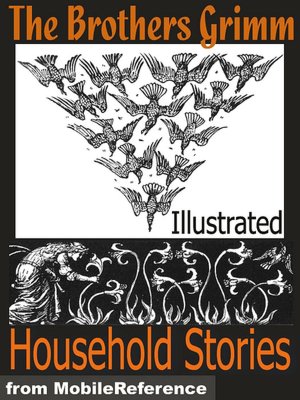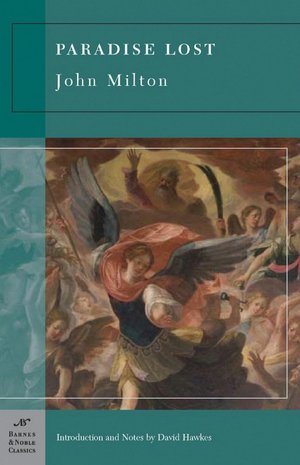Hi everyone! Today I'm posting an interview with my friend Nora St.Laurent, the CEO of The Book Club Network (TBCN), which introduces book clubs to fantastic Christian Fiction authors and provides ideas for book club leaders. They're having a huge Birthday Bash this August and will be giving away 10 books a day for the whole month of August! So get yourselves over there and sign up for FREE BOOKS! :)
TBCN INTERVIEW with Nora
St.Laurent
Nora Stlaurent’s Bio: Nora
is the CEO of The Book Club Network Incorporated. Nora and her husband run The
Book Club Network
www.bookfun.org
She runs two book clubs near Atlanta, Ga., Former ACFW On-Line Book Club. Nora
currently writes a Book Club column for the Christian Fiction OnLine Magazine
and is a Book Club Talk Columnist for Novel Rocket. You can read author
interviews on her Finding Hope Through Fiction blog, located at
http://www.psalm516.blogspot.com,
and reviews around the web at The Christian Pulse Mag, Title Trakk, Novel
Reviews, and Suspense Zone.
What inspired you start
TBCN?
The Book Club Network was born out of a desire to share
Christian Fiction authors with other book clubs, share book club ideas with
other leaders and to encourage the authors who are writing such amazing books.
The economy has been really tough for a few years and people are not parting
with money like they used to. Through TBCN they can take their time and find
the right book or win it. We have give away opportunities each month. ALL of
our contests are from the 19th – 21st of the month.
I run two face to face book clubs one at the Christian Book
Store I work at and the other at the church I attend. It’s a position I never
imagined I’d be in since I didn’t read for pleasure much before I started
working in a Christian book store 11 years ago.
But since I love talking with people and the main thing to talk
about in a book store is books I started reading Christian Fiction (publishers
sent ARC copies to our store and I started checking them out) The first book
that rocked my world and got me hooked in Christian Fiction was a book by Linda
Nichols called Not a Sparrow Falls her
next book did me in and I couldn’t stop talking about it, At the Scent of Water was her next book that prompted me to contact
the author and let her know how much her book touched my spirit.
After reading these two books and telling customers about these
reads I had a reason to read. These
books spoke to me because I wasn’t expecting it. It reminded me of the stories
in the bible. Jesus is the greatest story teller and He knew a story could
change a life or prick our spirit and move us in a direction we never thought
we’d be in.
I tell you all that to say I’m dyslexic and I have not been a
fan of reading. Movies were more my thing. I could watch a movie of a book and
have a lot more fun. Reading Christian Fiction changed my life in more ways
than one. I wanted to tell everyone
about the greatest book I read, and I’d do that at the book store. It was possible to talk about the new book I
read and loved for about a month or more but when At the Scent of Water and Not a Sparrow Falls were not on the shelf
anymore, I had to find some other books to talk about at work. I’m not a very fast reader so; discovering the
next new book was a challenge. Would I get the book read before it disappeared
from the shelf? How long do books live
on a book shelf? The shelf life of a book was a mystery to me and still is.
I was whining to my husband Fred about my problem. How can I get
the word out about great books for a very long period of time??? Being a man
who likes to face challenges head we began to talk about how we could do this
and the fact that I can’t read books fast enough to keep up with it’s shelf
life at the store.
I also told him as a book club leader I wanted to promote great
books and share them with other groups. Not everyone has the advantage of working
at a book store and see what new books hit the shelves each week. Another
struggle I had was if I had an author speaking at my book club I wanted to
share them with other book clubs in the area. How could I do that? Where are
book clubs meeting?
Our answer to many of these questions and more was the birth of
The Book Club Network - TBCN. Connecting authors to book clubs and readers to
their books; it’s also a network of book clubs as they post what they’ve read and
how the meeting turned out.
It’s a place to find where a book club is located. We have a
member map where you can find a book club near you. Message them and see if
they are accepting new members. I envision it to be similar to be similar to
the Weight Watchers program (don’t laugh Grin) you can go to a meeting anywhere
in the country right? All you have to do is look on line and get connected.
This is my hope for the future of TBCN.
Have there been any
surprises for you @TBCN? What benefits have you seen by bringing readers and
authors together?
I’ve been encouraged and fascinated by our growth. I can see
there were other people out there like me wanting to connect with other book
club members.
I’ll tell you what has surprised me is the author/reader interaction
each month. This is something I didn’t foresee as I’ve watch the authors are
having a blast interacting with the readers and visa/versa. The beauty of this
discussion is it’s there forever for all to read no matter when you join TBCN.
The authors have done a great job coming up with questions for
reader to answer that give them a peek into their book – create interest and
then the discussion helps book club leaders connect with the author. I’ve been
pleasantly surprised at the amount of authors that want to be featured @The
Book Club Network. It’s been a great thing.
The interaction with the authors is almost like having a book
club meeting on line. It’s a huge benefit for both the authors who’ve wanted to
ask clubs questions and readers who want to get to know authors. The authors
are catching on. Our sponsors have loved the interaction as well. Members have
told me that they love the author interaction from the 19th-21st
as much as having a chance to win all these books. It’s hard to know if a book
will be a fit for your group so these interaction times are helpful for that
and so much more. Another thing I love about TBCN members is the fact they are
not afraid to share what they think in a good way. I’ve learned so much and
laughed out loud in some discussion where the questions lead to sharing funny
moments.
My hope is that book club leaders and/or members participate in
the discussions and make that book connection with the author and their book. I
want TBCN to be a tool for them in picking out their books. Maybe invite the
author to speak to their book club on the phone. It’s my hope. The discussion
will be there forever. No worries about a books shelf live here @TBCN. So,
everyone has time to get to know each other!! It’s a beautiful thing!
How can readers join in
the anniversary celebrations?
It’s easy to sign up to be a member of TBCN. We ask a few questions for you to answer and
for other information that helps us keep spammers and other information seekers
out of the network. It’s also FREE. You have opportunities to win lots of
books. For our BIRTHDAY BASH we are giving away 10 books a day and announcing
winners once a week. You’ll have all week to enter the daily featured contests.
Do you have any other
comments for my readers?
If you are avid reader this is the place for you to learn
about the latest in Christian Fiction and interact with the author each month.
Are you a book club leader? Well this is the place for you to
find your next book club pick. We’d also love for you to set up your Book club
page at our site for others to see. It’s a place to share your latest featured
book. Post pictures of your club and the field trips you’ve taken. The authors
you’ve met and the book fun you’ve had. Learn from other book clubs that have
already set up their pages.
Want to start a book club but felt it was too overwhelming? You
can learn from other experienced book club leaders, and you can start right
away making your book club list!
Do you like to win books? This is the place for you. You’ll have
a chance to get to know the authors and their books and read genre’s you
normally wouldn’t. We’ve been giving away about 100 books a month and for our
birthday bash it’s going to be 10 books every day; starting August first.
Winners are picked weekly and announced each weekly.
THANK YOU! You’ve been a grand host to have me here and let me
talk about The Book Club Network and our Birthday Bash!! I hope to see you
there @TBCN www.bookfun.org
You are a Blessing!!
Nora :o)
The Book Club Network CEO



.JPG)
















